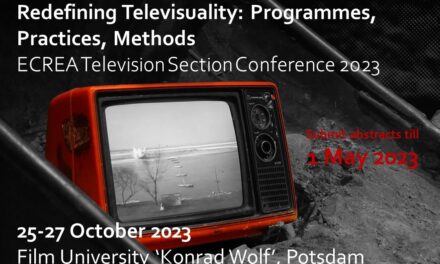Conference website: https://popmec.com/frontiers-conference/
The conference will focus on how the American imagination has shaped—and, in turn, has been shaped by—its frontiers and borderlands, marked by an intrinsic peripheral quality, sociocultural porosity, and a diverse range of experiences and identities. As Lee Bebout (2016) has highlighted discussing the US–Mexico border, representations of frontiers, the “other side,” and the people inhabiting these regions have been historically deployed to construct a dominant national identity—often exploiting, invisiblizing, or neglecting local identities in the process.
The proximity of otherness—which dwells in the borderlands themselves—implies an implicit threat to the sovereignty and cultural integrity of the nation eliciting a variety of perceived dangers, as well as exoticism, fetishization, and stereotypes connected to the peripheral regions and their people. Borderlands are at the same time familiar and troubling places, characterized by neo/colonial legacies and where “the fluidity of national borders collapses the otherwise clear distinctions between native and foreigner, domestic and international” (Alemán 2006, 409). Furthermore, the geography of the frontier is rife with threats itself, perceived as either wasteland, impenetrable growth, or impassable orography, overwhelming and foreign.
The conference invites reflections on the multimodal representations of the US borderlands and frontier experience in popular culture and discourses, focusing on the diversity of identities, liminality, and disenfranchised experiences of Americanness, as well as the construction of borders as means to define the US national imaginary.
KEYNOTES: Cathryn Halverson (Södertörn University), John Wills (University of Kent)
ROUNDTABLE: Rewest Research Group (David Río, Amaia Ibarraran, Angel Chaparro, Amaia Soroa)
Possible topics may be (but are not limited to):
- Representations of the borderlands, borders, and borderland communities in US cinema, TV series, and graphic narratives
- Borderland literature and artistic expressions, especially related to immigration, border-crossing, and the life in border communities
- The myth of the frontier: western narratives and Old West imaginaries
- The Mexican American borderland experience
- Representations and narratives about the militarized border fence
- Frontiers and the wilderness: representations of borderland landscapes and the desert
- Borderlands as wastelands: uncanny, horrific, dehumanizing representations of the frontier
- Immigration and crossing the borderlands
- Inner wastelands: representations of neglected and liminal realities in the rural heartland
The conference will organize specific session panels for postgrad students working on these topics, especially PhD students who are writing their dissertation on frontiers and borderlands. Participants to these sessions are invited to present on their work and engage in debate that could be fruitful to further develop their ideas. If you wish to participate in these sessions, please specify it in your submission.
EXTENDED deadline for proposals: JULY 21, 2023
We accept abstract proposals for individual presentations (≈ 300 words) or full panels (3-4 presenters, ≈ 250-word description of panel plus abstracts of all papers). Please, email your proposal to popmec.frontiers@gmail.com as a single attachment (.doc, .docx, .odt) including name, affiliation (if any), and contact email.
The language of the conference is English, presentations in Spanish will be accepted if the topic justifies the language of delivery.
If you have any doubt or inquiry, feel welcome to drop a line at popmec.frontiers@gmail.com
Registration fees
REDUCED (student / unwaged) 30€ + 12€ one year of PopMeC membership
FULL 50€ + 20€ one year of PopMeC membership
Venue
Instituto Franklin–Universidad de Alcalá
Colegio de Trinitarios, Calle de la Trinidad, 1
28801 Alcalá de Henares, Madrid ES
Academic Committee
Julio Cañero Serrano (Universidad de Alcalá)
Anna Marta Marini (Universidad de Alcalá)
Anne Magnussen (Center for American Studies, SDU)
Laura Álvarez Trigo (Universidad Complutense de Madrid)
Dina Pedro (Universidad de Valencia)
Michael Fuchs (University of Innsbruck)
Stefan Rabitsch (University of Oslo / EAAS West of the Rest network)
Ana Lariño (Instituto Franklin-UAH)
Laura Rey (Instituto Franklin-UAH)





